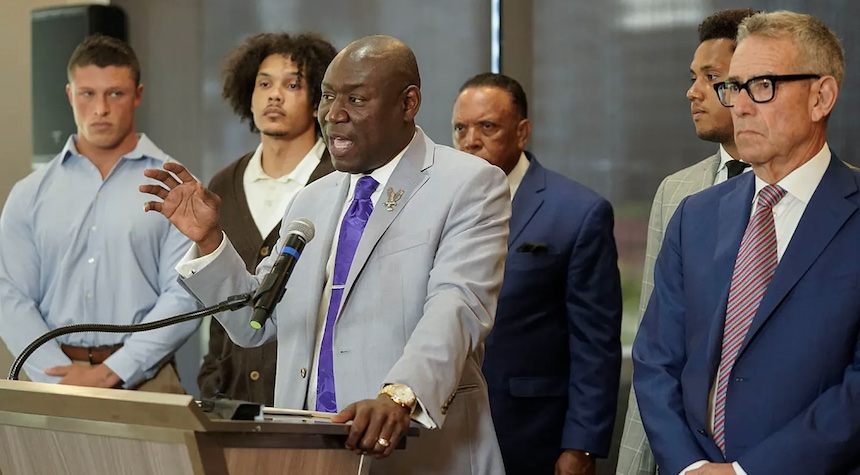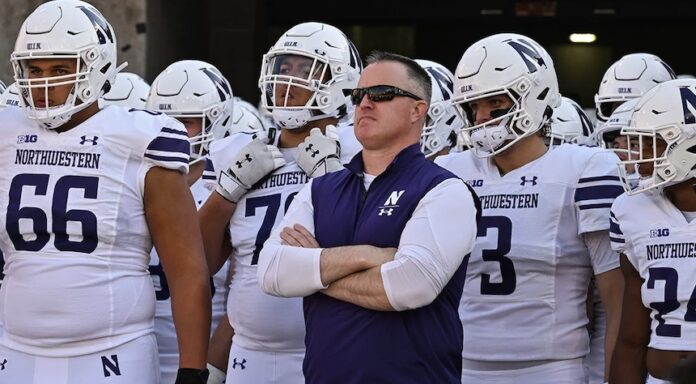Ben Crump announced that he would file a suit on behalf of 15 former Northwestern football players who claim to have suffered physical, sexual, and emotional abuse.
Crump spoke Wednesday at a Northwestern press conference, along with several former athletes. He and his co-counsel Steven M. Levin said that they spoke to more than fifty student-athletes. This included both men and women who claimed to have experienced hazing.
Crump stated that “it is obvious to us that there was a toxic environment that pervaded the athletic department of Northwestern University.”
“What they shared with us clearly was a pattern and practice based on physical intimidation and harassment, as well as discrimination and abuse, both mental and sexual, that had become normalized.”
Crump pointed out that at the time, some of the alleged victims were minors. He said that he, along with other attorneys, had received disturbing details about abuse from former softball and baseball players at the University.

Crump said, “This is an issue of civil rights for me because I believe these players have the right to respect and be valued, and not be hazed, intimidated, and retaliated against.”
“I am sure that in the coming days and weeks, others will find the courage to share their stories. The phone calls I’ve received have encouraged me. The phone calls we’ve been receiving from young people who are telling their stories and wondering, “If I come out, what will happen to myself? I want to let them know that they will be protected and won’t be left alone.”
Crump said that the lawsuit had not been filed yet, but another law firm filed one on Tuesday, accusing Pat Fitzgerald, the ousted football coach, of creating a racist culture, forcing players of color to cut their hair or behave differently in order to conform to the “Wildcat Way”.

Many more lawsuits filed by different law firms are expected.
In an open letter dated July 10, Northwestern President Michael Schill revealed that the decision to terminate Fitzgerald after 17 years with the Wildcats was a result of an independent investigation that found him to be at fault for his “failure” to prevent and know about significant hazing within the football program.
Fitzgerald was suspended for two weeks after the confidential investigation. The report found that there wasn’t “sufficient” proof to prove the coaching staff were aware of the ongoing hazing. The investigation also revealed that “significant” opportunities existed to learn about the ongoing hazing. Nearly a dozen players, both current and former, acknowledged this hazing.
As new information emerged, including accusations of racial prejudice, the university decided to fire Fitzpatrick.


